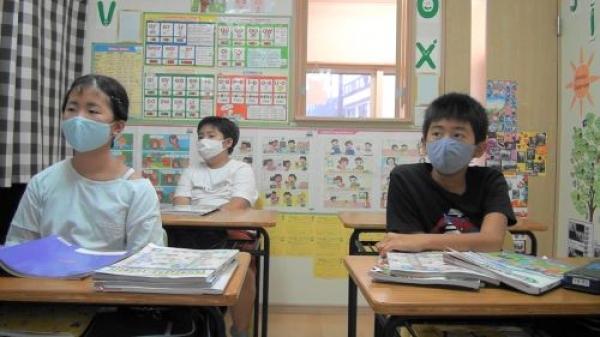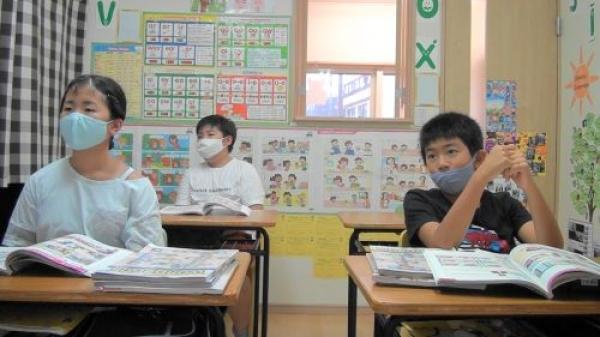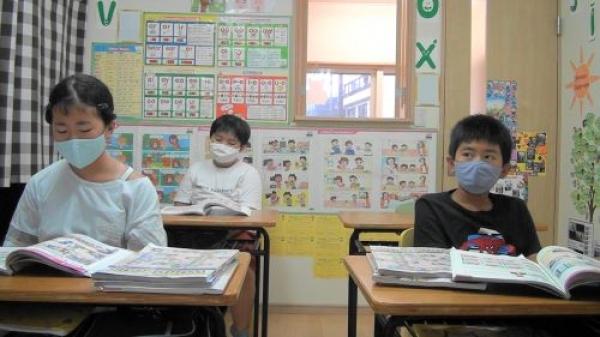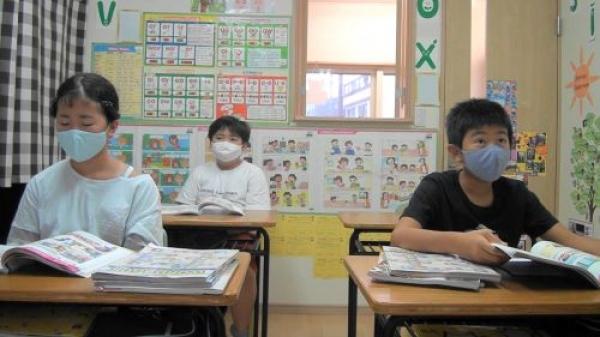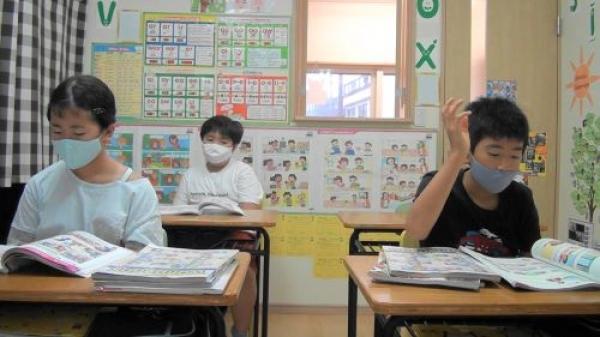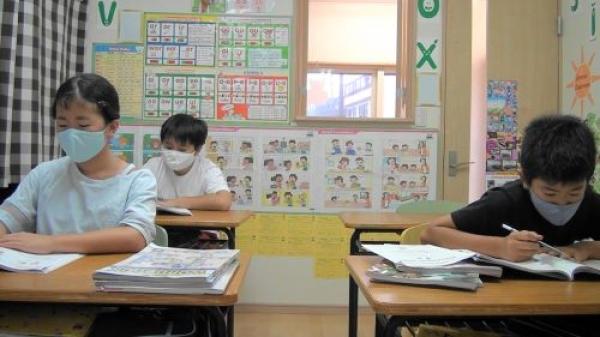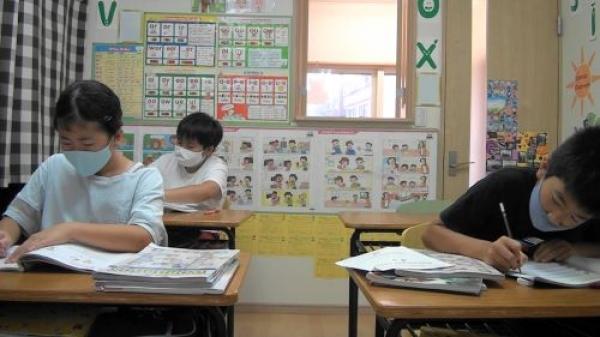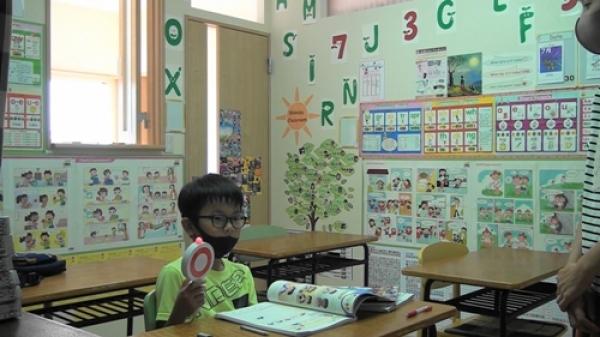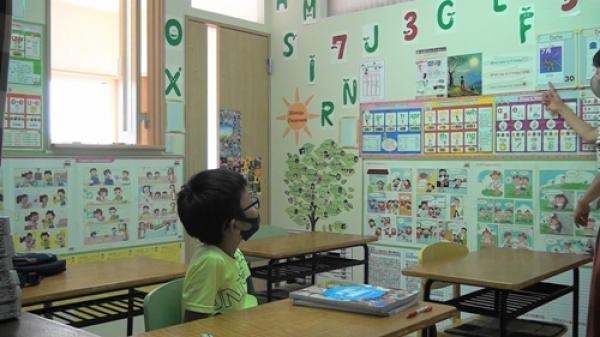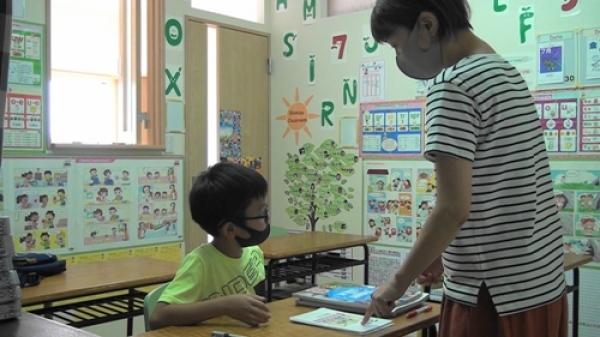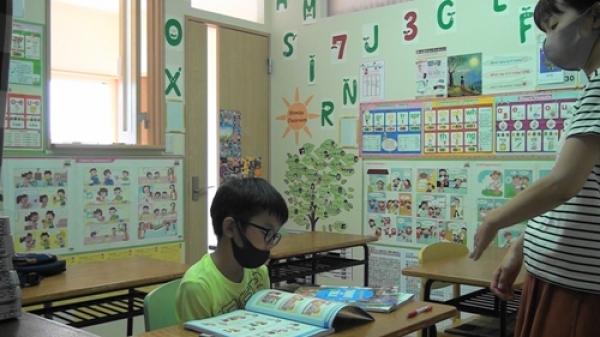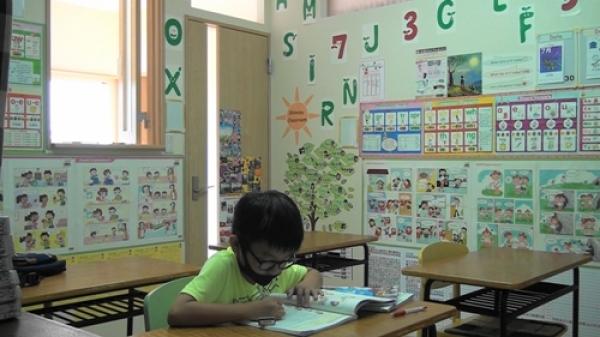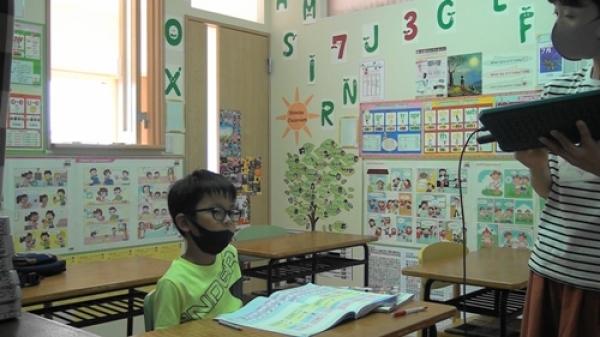PI月曜日レッスン2021♪
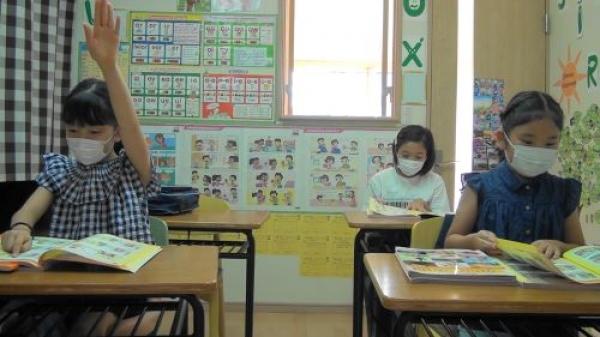
レッスン紹介、最後はPI月曜日クラスです。写真では、生徒がとっさの一言表現を復習していて、講師が言ったセリフを探して指差しをしています。
Lastly is Monday’s PI class. The students are reviewing the Useful Expressions, and in this photo they are pointing the conversation bubble that the teacher said.
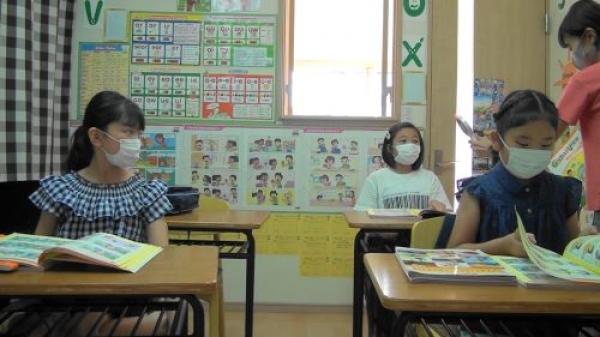
6ページある一言表現のページから、私がどこを言うか分からないので、生徒もよく聞いてセリフを探さないといけないのですが、すぐに探して”Here!”と言ってくれます。
The students have to listen carefully and find the sentence I say from the 6 pages of Useful Expressions. They don’t know which one I’ll say but they can quickly find it and say “Here!”.
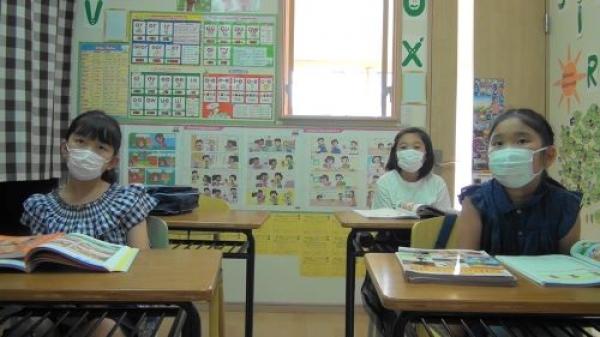
毎回、簡単な物語を聴いて、日本語訳をし、英文を読めるようにしていきます。この日は外国のサウナの話。外国の文化の勉強にもなります。
The students listen to the dialog, translate into Japanese, and practice reading the dialog every lesson.
This day’s story was about a sauna in a foreign country.
They can also learn about foreign culture in the class.
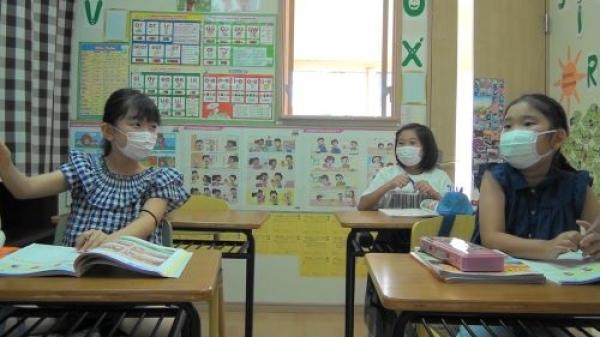
今回の表現は”Do you~?”炭酸飲料を飲みますか?テレビドラマを見ますか?など、いろんな普段する事を質問しました。テレビドラマの話で盛り上がりました。
They learned the expression “Do you —?”. For example, “Do you drink pop?”, “Do you watch TV drama?” and so on.
They talked a lot about the TV drama that they usually watch.
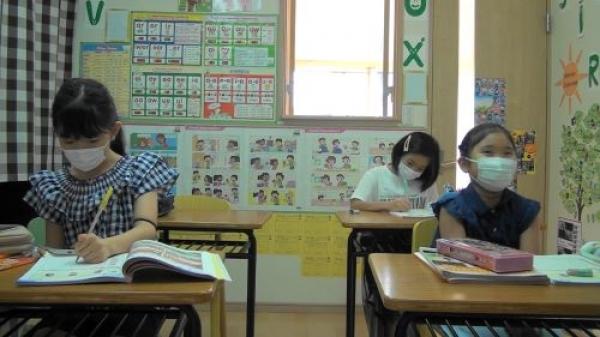
それぞれ先生役、生徒役になって、”Do you —?” の文を質問して答えます。質問に答えるだけでなく、英語で質問出来るように練習していきます。
The students become a teacher and ask the question using “Do you—?”, and become a student and answer the question like “Yes, I do.”, “No, I don’t.”
They practice not only answering the question but also asking many questions in English.
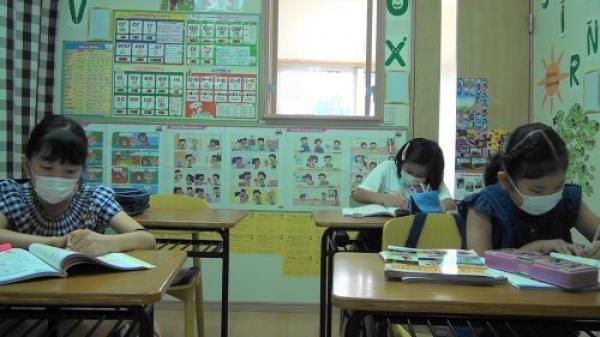
習った表現を書くところまで行います。文章を書く練習を小学3年生から行いますので、高学年になる頃にはかなり慣れて来ます。
The students practice writing the sentences that they have learned.
They usually start writing the sentences when they are in the third grade, so they get used to it by the time they are in the fifth grade.
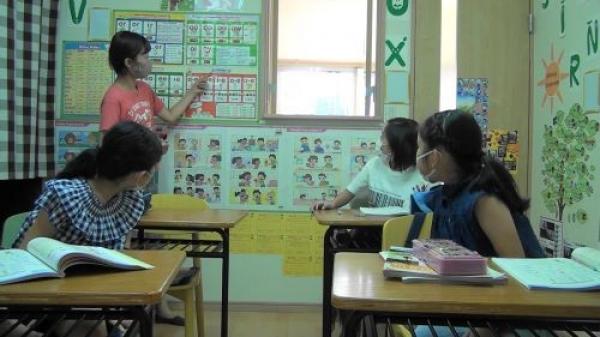
フォニックスとは、アルファベットのもう一つの読み方です。漢字に音読みと訓読みがあるように、アルファベットにも”アルファベット読み”と”フォニックス読み”があります。それを一つずつ覚えていくうちに、単語も読めるようになります。教室後方に、フォニックスのポスターがたくさん貼られていますので、それを使って説明しています。
Phonics is another way of reading of the alphabet. The alphabet has two ways of reading it; the “alphabet reading” and “phonics reading”.
It is similar to the “on-yomi” and “kun-yomi” in kanji.
They can learn to read English words while they learn how to read the letter day by day.
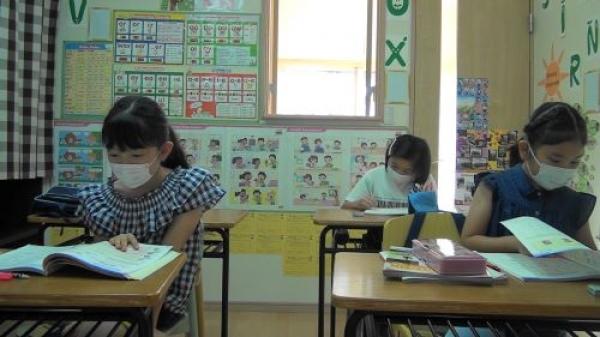
この日は、サイレントEという、特殊な読み方を学習しました。例えば”kit”は「キット」と全てフォニックス読みですが、”kite”のように語尾に”e”が付くと、「カイト」と、”e”自身は発音しない代わりに”i”の発音がアルファベット読みに変わる事があります。生徒たちは一生懸命そのルールを使った問題を解いていました。
On this day, the students studied the “silent e”, that was the special reading. For example, we can read “kit” using the phonics reading for each letter, but when the word has “e” at the end of the word like “kite”, the pronunciation of “i” changes to alphabet reading without pronouncing “e” itself.
They were trying hard to answer the questions with the rule.
お問い合わせフォーム


